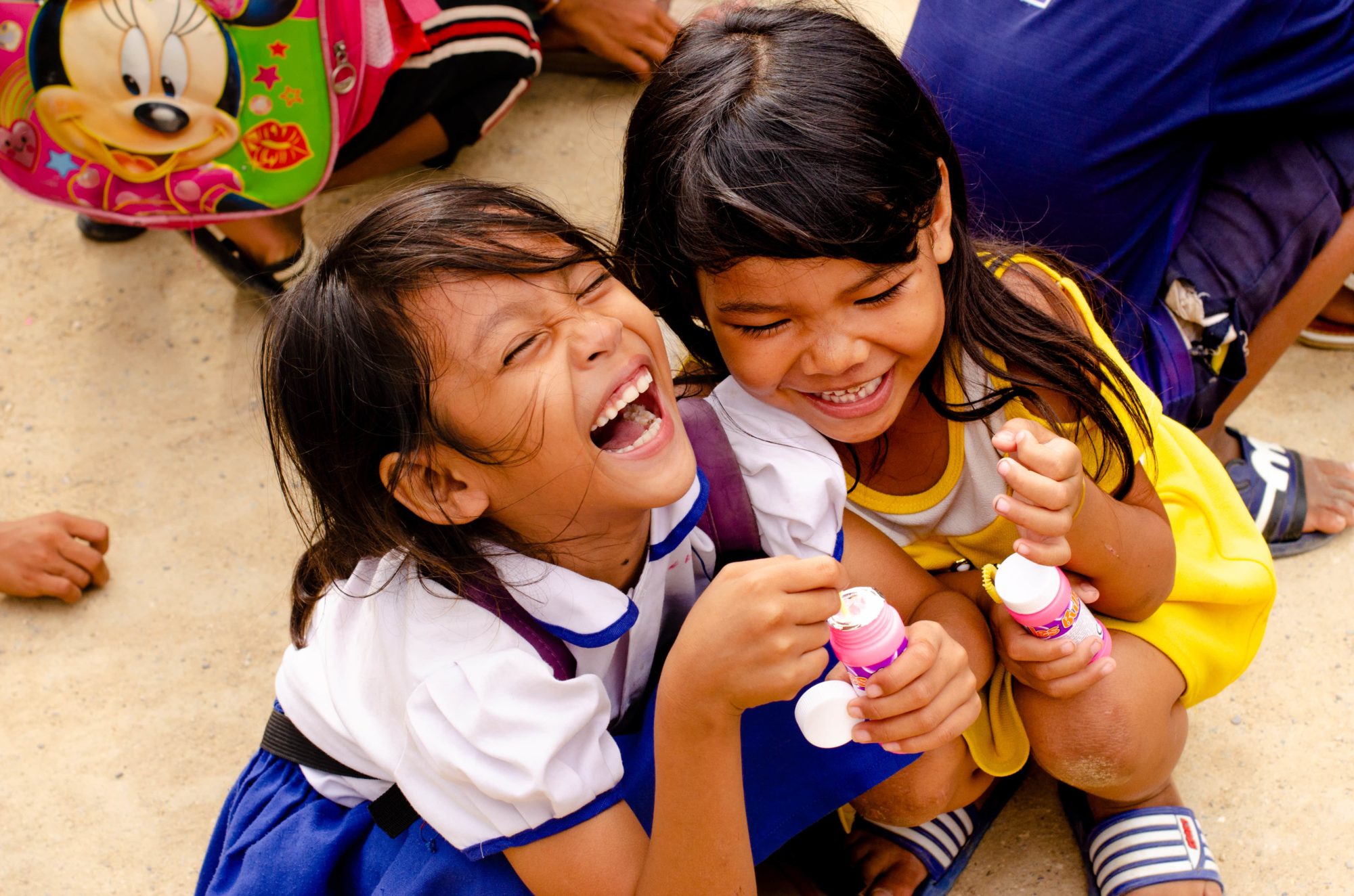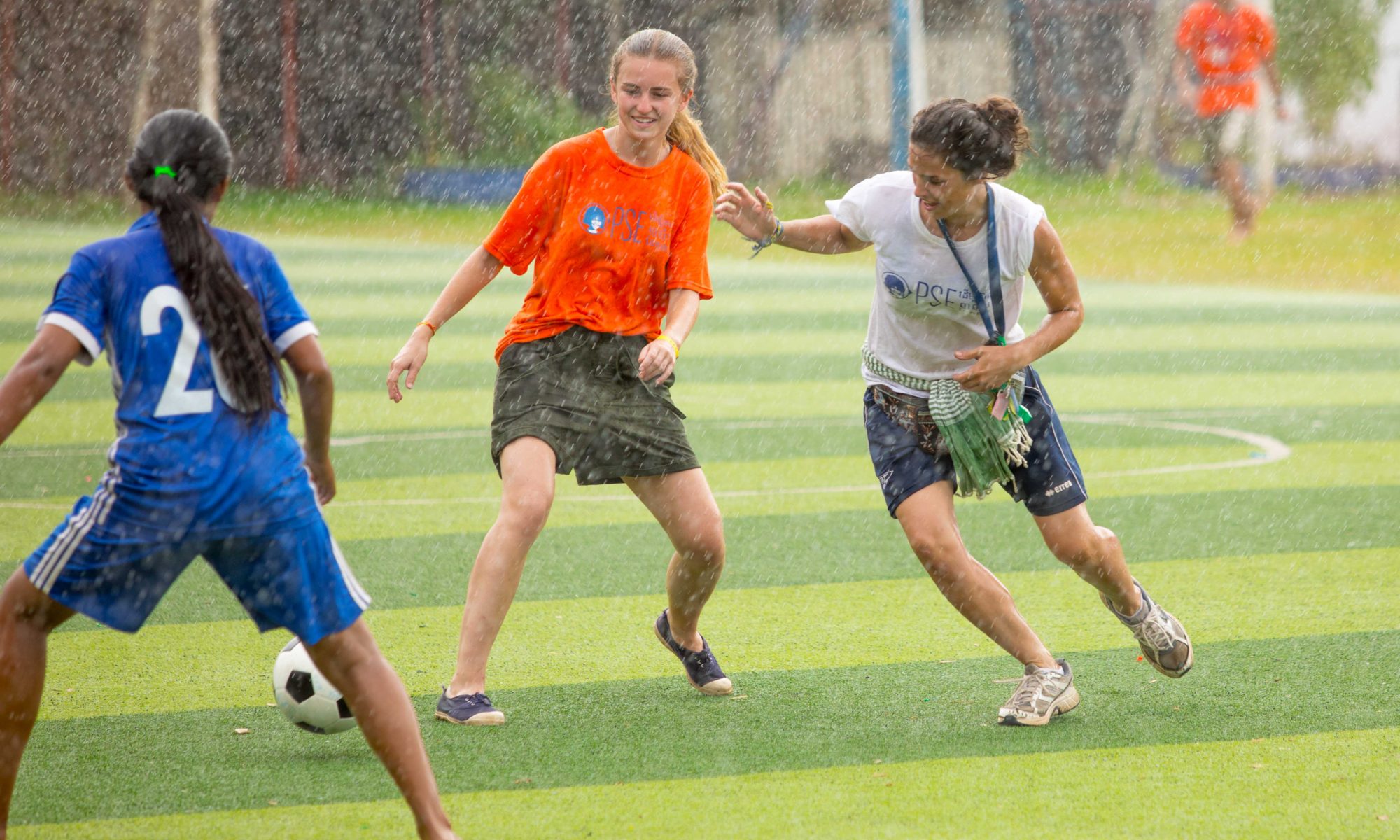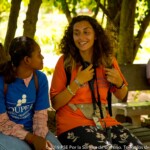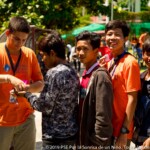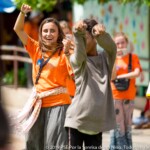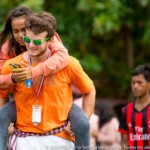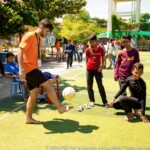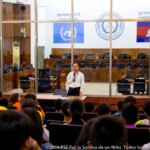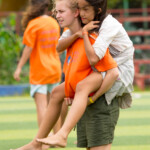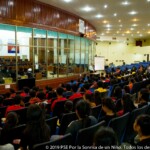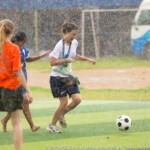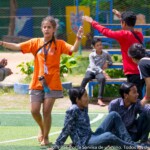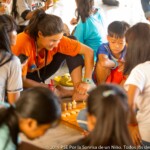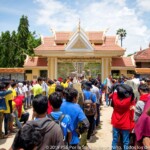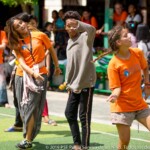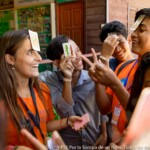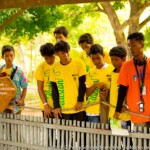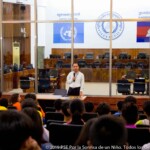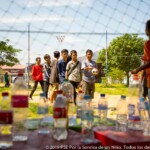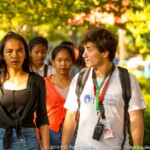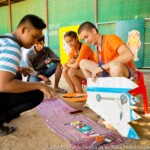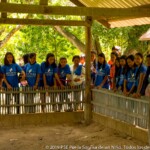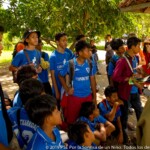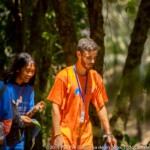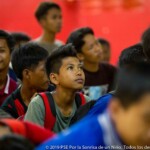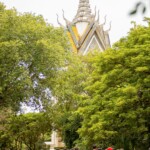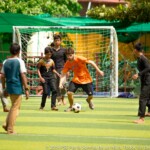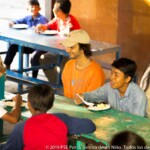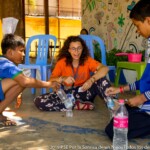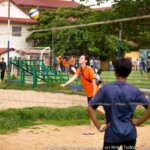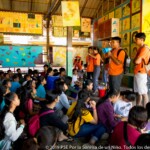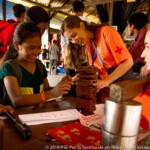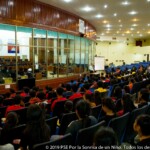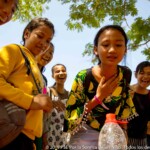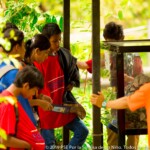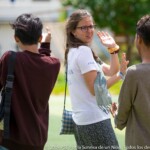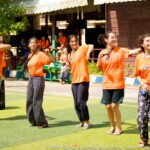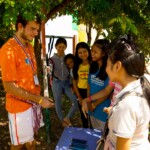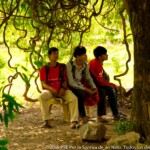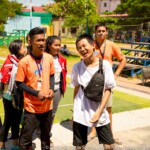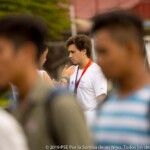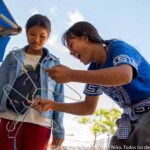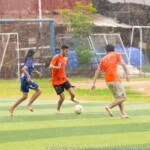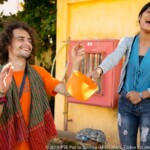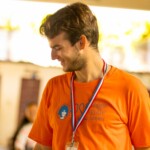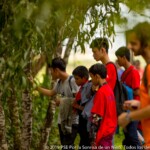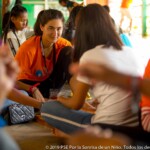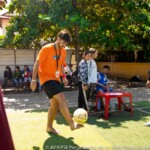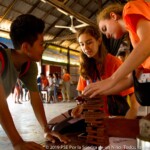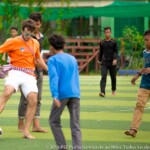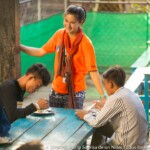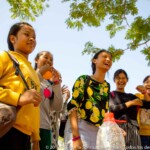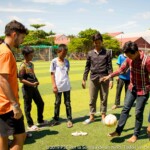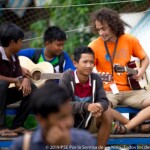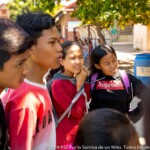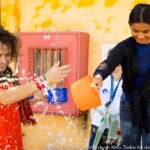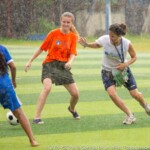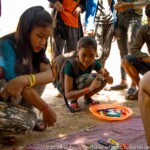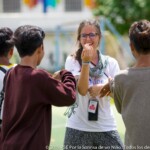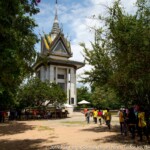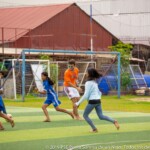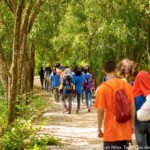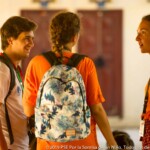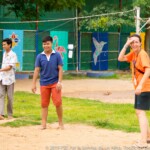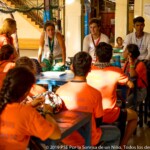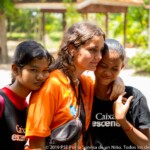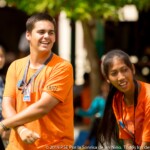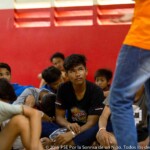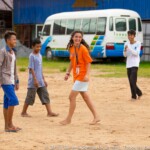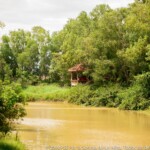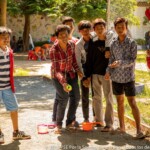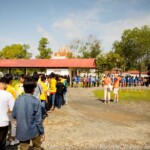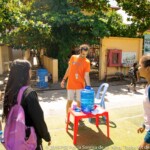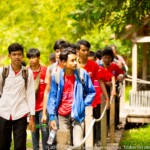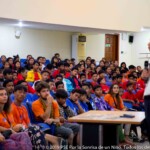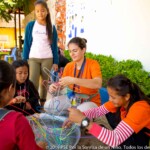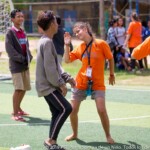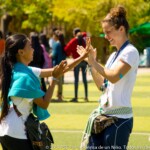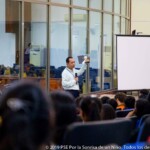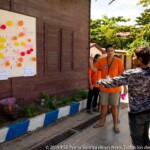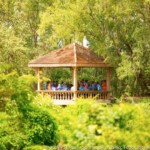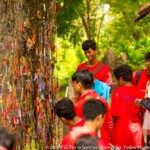If there is one common point to youth people from all over the world it definitely is teenage. That time of their life when they don’t know what to do with their changing body, with their emotions, even with their age as they no longer are kids, but they are not yet adults either. They do not know how to apprehend their future and how to interact with people. It’s a period of life during which these adults-to-be lose all their groundings. To help the 14-to-19 years old Cambodian teenagers going through all of these questionings, PSE set up a specific project for the Teenagers within the School Continuity Program.
The Teenagers program regroups around 300 grown-up kids and consists in showing them the importance of studying and starting their life the right way, by teaching them first how to think by themselves. “They can think the same way and process the information the same way that we do. They can. The only thing they didn’t have the education, the didn’t have someone making them think. That’s why we are here. We are not telling them what to do, it’s about teaching them how to think, the same way European teenagers learn how to think by themselves..” tells Angela, one of the two European coordinators for the Teenagers’ project.
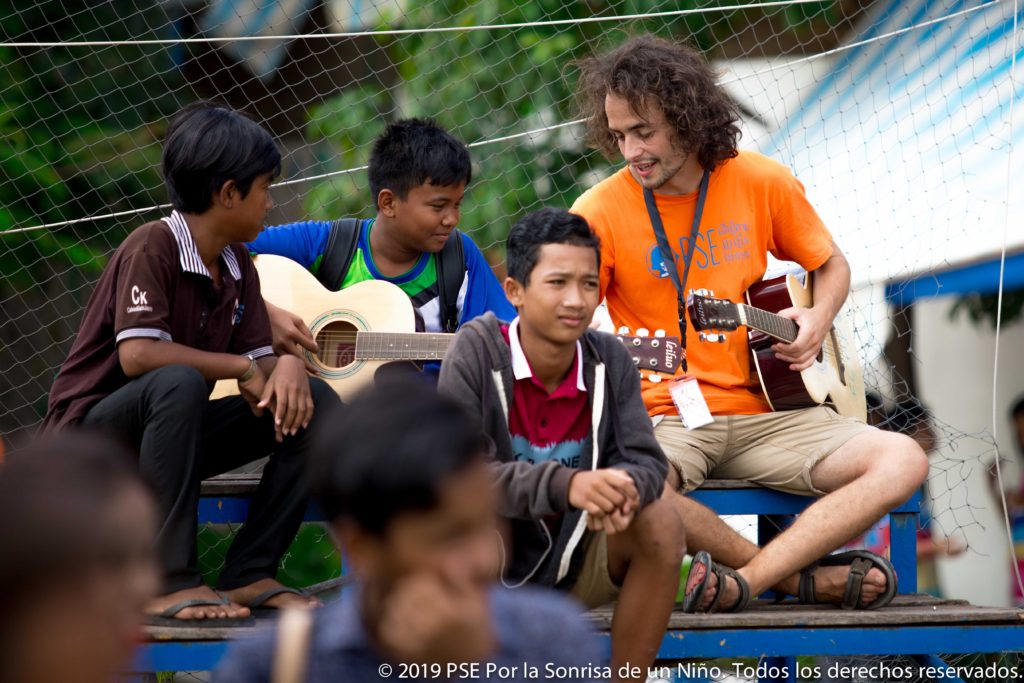
If most of them have been coming to PSE for years, when they reach the age of 15/16 years old, they want to leave it and get money quickly and easily. That’s why the Summer Program is essential and completes the work done by PSE so far. “Teenage is the crucial age for the children’s development. They need to develop many things when they become adults. There are some ‘life skills’ they need to understand before they get a foot in the adult life.” says Khemara, the Khmer coordinator for the program.
For the 38 young monitors, the Teenagers’ Summer Program represents a big challenge as they have to teach them a lot, “it’s a lot of pressure,” admits Angela before adding “it’s a huge job but a beautiful job!”
The Teenagers Summer Program is organized around different themes to sensitize the children to different points that matters for them.
Therefore, the teenagers summer program is organized around different themes to sensitize the children to different points that matters for them: emotions and empathy, living a healthy life, communication skills and professional opportunities and self-confidence. Each of those will serve as a guideline for the activities of the week.
The first week was an emotion-oriented one and the teenagers’ feedback are extremely positive. Indeed, most of them do not have the opportunity to talk about it at all, which partly explains why it is so hard for them to manage their emotions. “For me, understand more about my own emotions is useful. Because, sometimes when I am at home I can feel the stress and depression and it’s hard when you find no one to help you with this. In the camp, I feel better because I can share my personal problems and talk with the monitors to get advice to help me and feel relieved.” shares Tak Phally, a 18 years old student who takes part to the teenagers’ Summer Program for the third time.
The second week was about having a healthy and balanced life and, on Monday, the teenagers started with activities related to this theme, but only to introduce it. Then, on Wednesday, they had workshops and Ferias – short individual activities – to show them both the bad way to live, surrounded by gamblings, drugs, and miserable jobs; and the good way to live, healthy, caring and responsible. To do so, the Medical and the Dental teams came giving some talks about the risks of drugs and alcohol or the importance of having a good hygiene for instance. But they also answer the teenagers’ questions which often come from old and wrong beliefs, especially about touchy topics like periods or the use of contraception.
“Health education is very important for the teenagers, who are going through crucial stage of their development. It helps them to understand the side effect to using drugs, drink, and smoke and tell them to get away if they do not want to fall in its terrible illness and life which lead them to have lots of disadvantages”, Farit Man, Khmer monitor within the Medical Team.
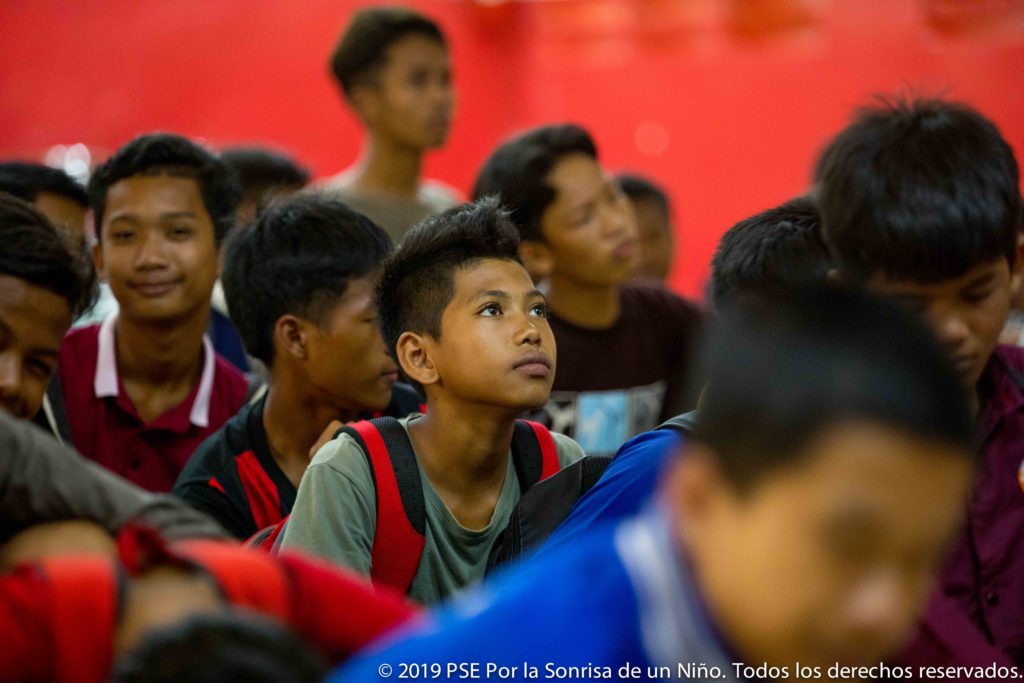
In addition to these workshops, the European monitors also organized Ferias activities. They are short and individual activities, meaning the teenagers are not playing by team anymore but one by one and tries to reach a goal fixed in advance, as filling a cup of water by pouring water from 1,5 meter above the cup, or launching a rock in a bottle of water 1 meter far from it and so on. To play they had to pay with the fake money they’ve been given, so they had to manage their budget. And once they had spent everything, they had to go the bank and ask for more money against push ups, jumps or other physical challenge: earning money is never easy. When they won they received two or three times the money they paid. But the activities were meant to be lost. As Manon, European monitor for the first time, explains: the general idea behind these games was to teach the kids that gambling is dangerous, earning money is hard and managing a budget is not easy either. “This activity shows the teens that gambling often ends up by making them losing all the money they worked really hard to earn. We really try to send messages behind every game.”
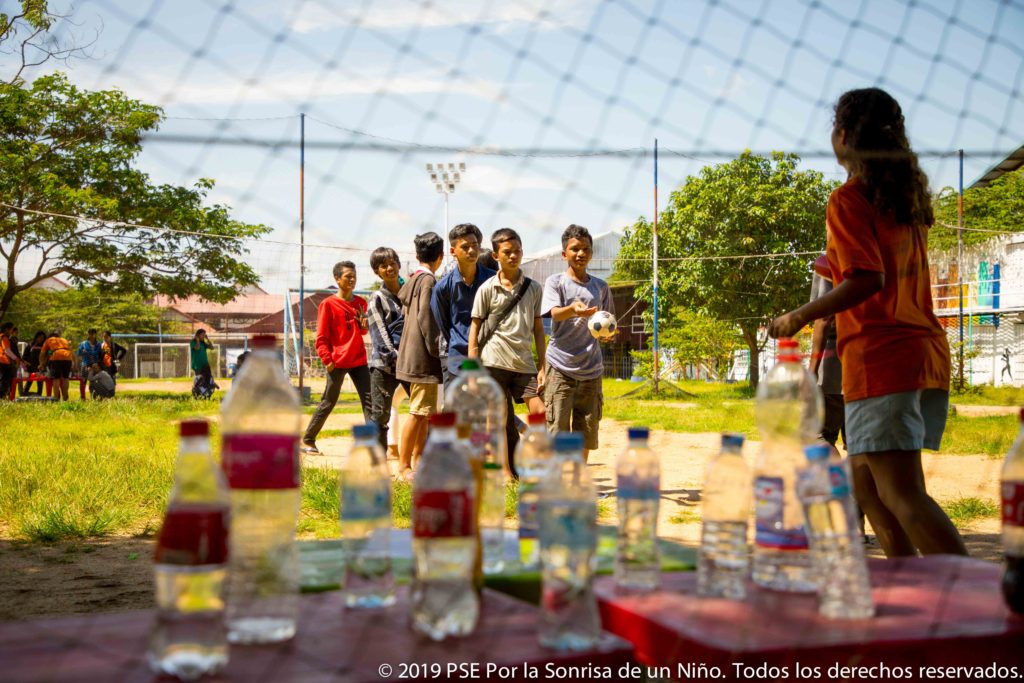
“As a teenager you have the opportunity to share what you need and what you want”, Pelayo
The Teenagers’ project differs in the others by the great importance given to feedbacks. Angela and Pelayo, the two European coordinators, and Khemara, the Khmer one, pay attention to ask the teens how they feel and what they thought about the activity after it. It really is essential to make sure they understood the right message, but also to make them think about what they just learn, what they just played to. Saying it loud teach them to formulate clear thoughts and opinions, which are their own and might differ from the others’. Furthermore, two times a week, bigger feedback are organized, concerning the whole week and their general needs.
“We ask them about the outings, about their weeks, their needs, the bathrooms, their free times, what do they think of the activities. One of the differences I noticed compared to the other camps is that now you’re not a child anymore, as a teenager you have the opportunity to share what you need and what you want” tells Pelayo, European coordinator for the first time of the Teenagers’ program. “We try to listen to them and to bring a solution that matches their problems”.
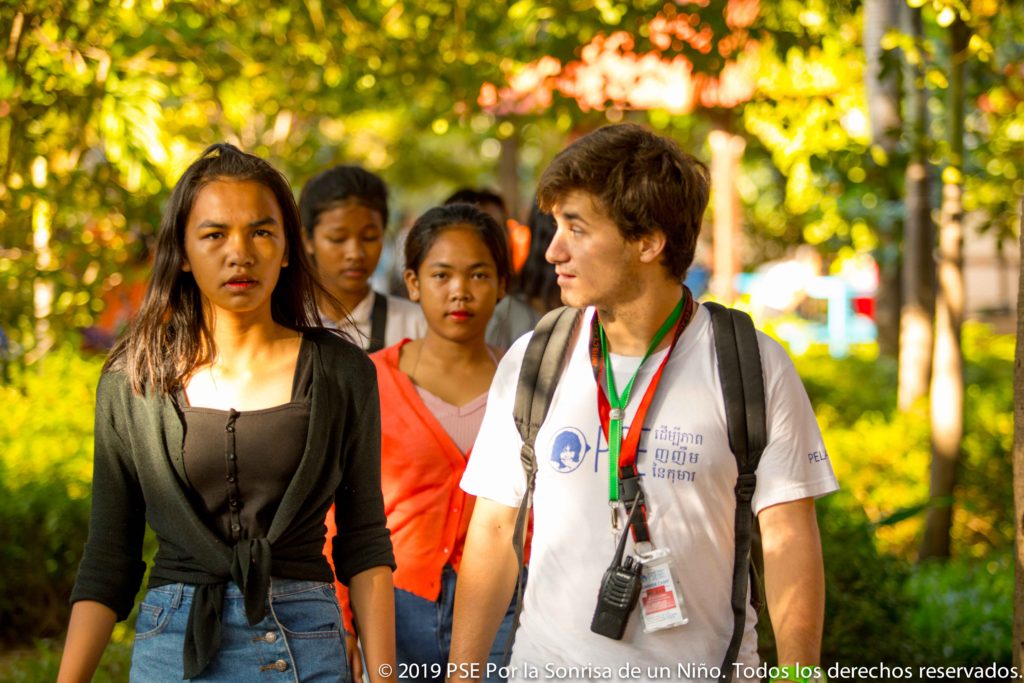
“The summer camp for teens is not a free time, it’s an opportunity to show them the importance of studying and the kind of opportunities they can get if they do so”, Pelayo
The 4 weeks the summer program lasts, also allow the teenagers to go for some outings they do not have the opportunity to go to in their daily life. Two times a week, on Tuesday and Thursday, the three hundred teenagers are given a colored T-shirt – one color pergroup of 40 so that they are easily recognizable during the outing – and are fitted as well as possible in the buses that will bring them to the museum, the court of justice, the horse riding club or the aquapark. One outing out of two is a cultural one, and the other one is a more “relaxed” one so the teens can just have fun a way they are not used to for one day. They also benefit from very special outings introducing them to work: on the 4th week, after having visited all the trainings PSE offers to teenagers, they will go to the Sofitel where the general manager from this big hotel located in the city center will give them a tour and introduce the kids to the different jobs existing in such a place, to show them the kind of right paths they can choose in their lives. “The summer camp for teens is not a free time, it’s an opportunity to show them the importance of studying and the kind of opportunities they can get if they do so.” Pelayo.
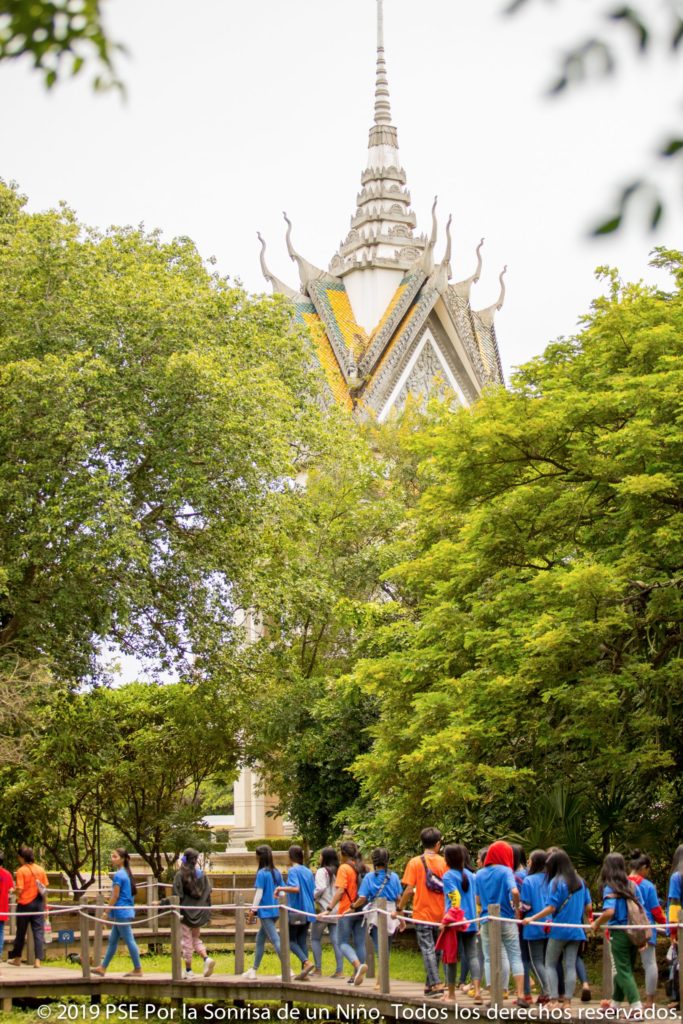
PSE is currently thinking about implementing a new training program, very short in time, probably lasting between 3 and 6 months to start giving key soft skills and know-how to the teenagers so they don’t end up trying to get fast and easy money. The hope behind it is also that it will show them how studies can open new opportunities and that it worth it to wait a bit longer before earning your own money. Especially as they get some compensation from PSE as the weekly rice for example. This type of program already exists for adults in 4 domains: sewing, cooking, housekeeping and beauty care. The idea would be to integrates droupouts teenagers within these trainings so they learn the basics of a job but, mostly, how to behave at work and become reliable for their employers.
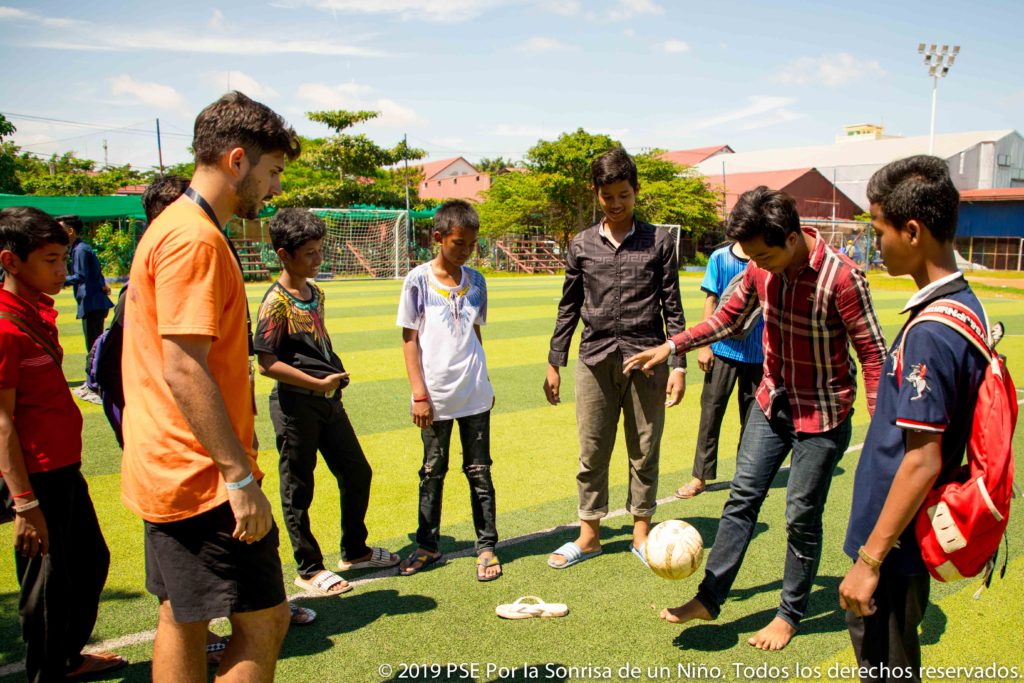
Cambodian teenagers are still teenagers and they share with any other teen from the world the same desire for freedom, the same irritation for imposed rules, the same willingness to do nothing sometimes. All of that is taken into account and if some rules and activities are non negotiable to respect or to attend to, there is also some time given for the teenagers to just be teens. For example, every day after the siesta (“nap” in spanish, used this way during the summer programs), they have a free-time during which they can do whatever they would like to: talk with each other, listen to music on their phone or play whatever they want. And, how surprising it can be, a lot of them use this free-time to practise sport. Like the siesta, these are times the teenagers cannot enjoy when they are home.
“It can seem really hard, but when if you put your heart and your soul and your efforts into it, it’s really easy”, Blanca.
Although they might be hard to deal with sometimes, which does not change much from the European teeangers according to the European monitors, they really are touching by the way they try to speak English with their monitors, their way of perceiving them as their role models, their involvement in whatever can make them grow up. “They’re super smiling and grateful. You really are a role model because for them you’re what they want to be, you’re someone that has everything so they’ll look at you all the time. It can seem really hard, if you put your heart and your soul and effort into it, it’s really easy. We were teenagers 5 years ago, we know what they want, what they are facing”, says Blanca, 1st year European monitor for the Teenager’s program.
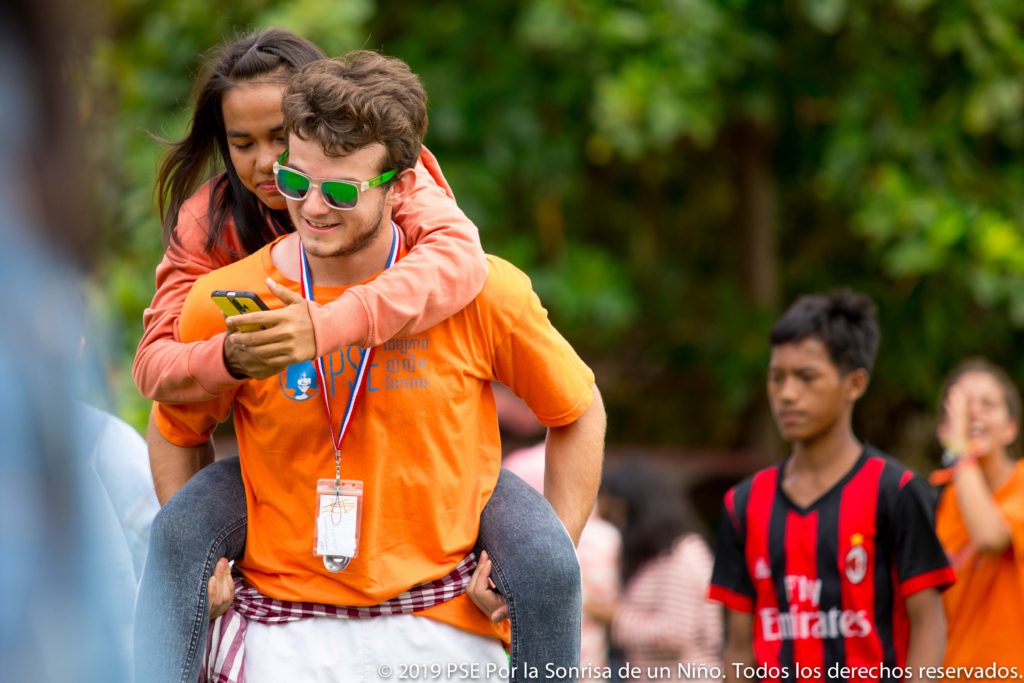
For some teenagers who are old enough to leave, it is the last Summer Program they’ll be part of, so their last chance to be shown the right way to start in life, the last chance to be with the monitors they see as mentors and whose advice is often listened carefully.
Khemara made the objective of this program cristal clear when saying: “Our slogan is ‘Future is here’ because we want to see all the teenagers who join this camp could be able to change their life with positivity.”
PSE would like to thank Torneo de golf Santander and Cuerva y Q Capital for their economic supports to the Teenagers’ project.


